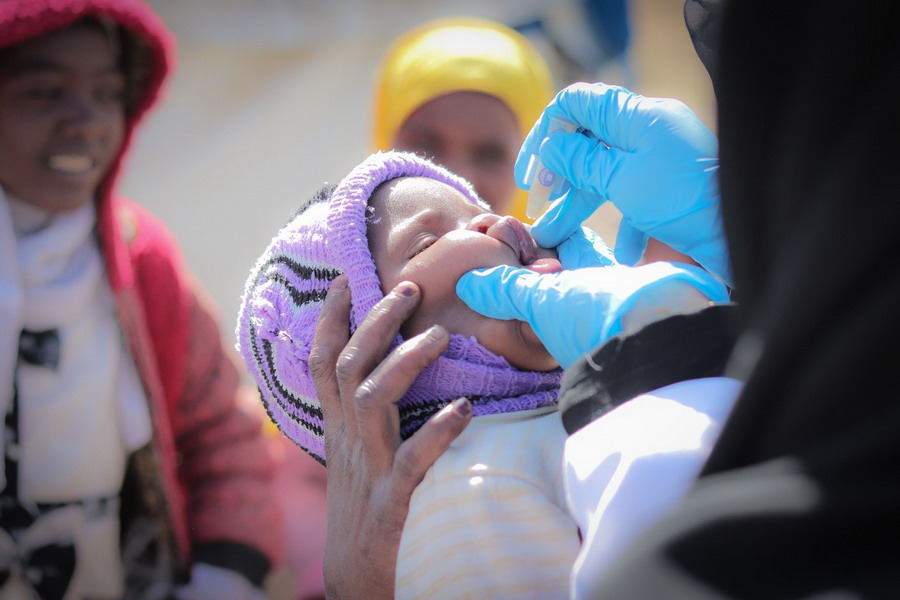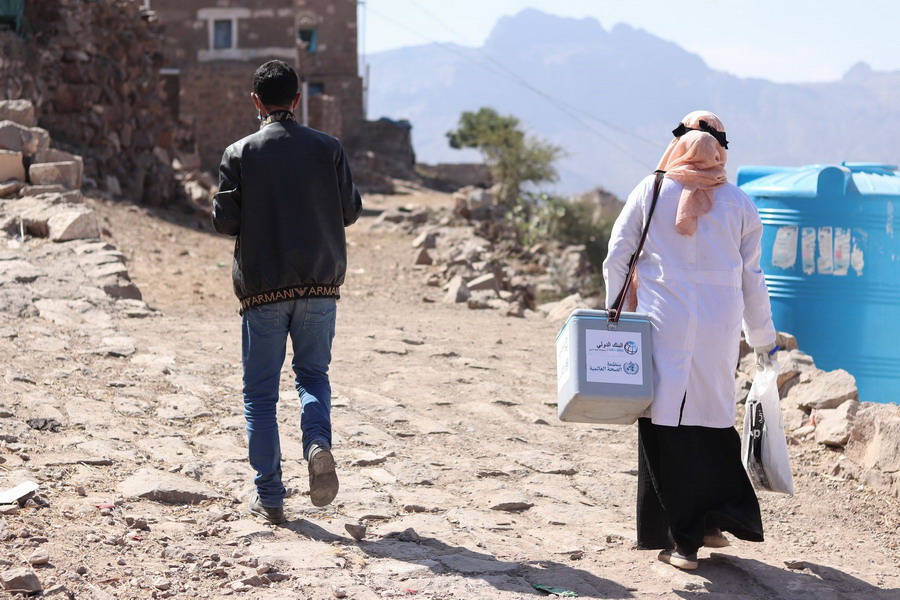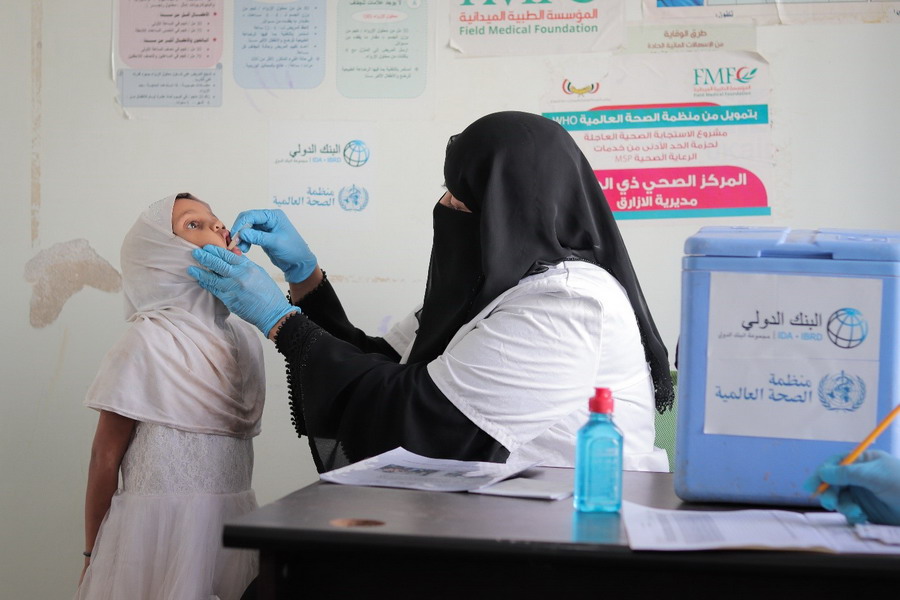 A child receives an oral cholera vaccine during the campaign. Photo: WHO
A child receives an oral cholera vaccine during the campaign. Photo: WHO
15 March 2021 – Yemen's conflict has resulted in a large-scale public health crisis, with a spiral of epidemic-prone infectious diseases, including the worst cholera outbreak ever recorded, with over 2.5 million suspected cases since October 2016. In 2020, a total of 230 540 suspected cholera cases and 84 associated deaths were reported nationwide. Areas that lack access to clean water and proper sanitation conditions are the worst hit.
WHO and health partners have been supporting health authorities to respond to this ongoing cholera outbreak. The response has included case management, surveillance and laboratory diagnostic capacity, hotspot mapping and oral cholera vaccine (OCV) campaign planning and implementation, water, sanitation and hygiene (WASH) support, and risk communication.
As part of this effort, in December 2020 and February 2021, WHO, in cooperation with UNICEF and the World Bank through the Emergency Health and Nutrition Project, supported the Ministry of Public Health and Population in conducting an oral cholera vaccination campaign in Hajr district in Hadramaut governorate and Al Dhalea and Al Azareq districts in Al Dhalea governorate.
As many people in these rural districts face difficulties in reaching health care centres, the campaign has assigned fixed and mobile teams to cover over 32 000 households and over 188 000 people in the 2 governorates.
"Because of the continuing conflict and COVID-19 consequences, access of the Yemeni people to basic health services remains a major concern. We have to proactively reach out to the population in need, including those in camps for the internally displaced," said Dr Adham Ismail, WHO Representative in Yemen.
As of 10 March 2021, Yemen's health authorities reported 2590 confirmed cases of COVID-19, with 655 associated deaths, but health partners remain concerned that under-reporting may be continuing in some areas of the country due to many reasons, including lack of testing facilities and delays in seeking treatment. The pandemic has further worsened the population's access to, and utilization of, health services.
 A total of 215 vaccination teams were mobilized to reach over 32 000 households and over 188 000 people in the governorates. Photo: WHO
A total of 215 vaccination teams were mobilized to reach over 32 000 households and over 188 000 people in the governorates. Photo: WHO
Nabilah Ahmed Ali Saleh works as a midwife in Jalilah medical unit in Al-Azareq district. She volunteered to participate as a vaccinator in the campaign, working hand in hand with health educators to convince people to take the vaccines.
"It is my responsibility to provide people with correct information about the importance and safety of vaccination," said Nabilah. "I was delighted to take part in this campaign and serve these people who otherwise would not have been able to get vaccinated."

Gomea Thabit, 25 years, lives in an internally displaced persons camp in Al Azareq district, where she has settled with her family after having fled the violence in Al Hudaydah governorate.
"I took the vaccines with my children. I advise all parents to receive the vaccine to protect themselves and their children from the disease," she said.
The Yemen Emergency Health and Nutrition Project aims to strengthen basic health and essential nutrition and water, sanitation and hygiene services. It also aims to support and preserve the national implementation capacity by investing in the existing, local structure in the health and water and sanitation sectors, which will help maintain the main foundations for a speedy recovery in the post-conflict phase in the future.








